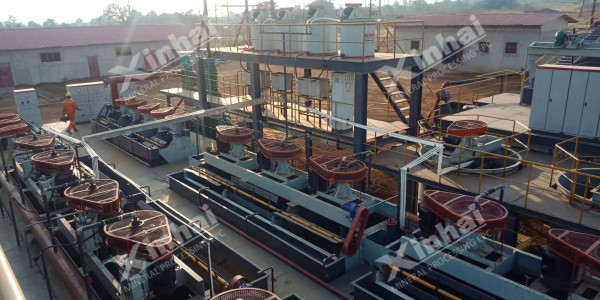The floatability of spodumene and beryl is similar, and their flotation separation is recognized as a major mineral processing problem. The key to achieve this separation is to find effective inhibitors, so that one of the minerals can be suppressed, while the other mineral has little impact.
There are three kinds of processes that have been applied in industrial production.

Some spodumene is preferentially floated, and then spodumene and beryl are mixed and separated. NaF and Na2CO3 are used as adjuvants to preferentially float part of spodumene with fatty acid soap, then NaOH and Ca2+are added, spodumene beryl is mixed with fatty acid soap for flotation, and finally spodumene beryl mixed concentrate is heated with Na2CO3, NaOH, acid and alkaline water glass to separate beryl.
The floatable minerals are selected first, and then spodumene is restrained in Na2CO3, Na2S and NaOH high alkali medium. The beryl is preferentially floated with fatty acid soap. After the beryl flotation tailings are activated by NaOH, spodumene is floated by adding fatty acid soap.
In a low alkaline medium with Na2CO3 and alkali lignin (or sodium fluoride and lignosulfonate) for a long time, beryl and gangue minerals are inhibited, and spodumene is flotation by oxidized paraffin soap, naphthenic acid soap and diesel oil. Then NaOH, Na2S and FeCl3 are added to activate beryl and inhibit gangue minerals, and beryl is floated with oxidized paraffin soap and diesel oil.